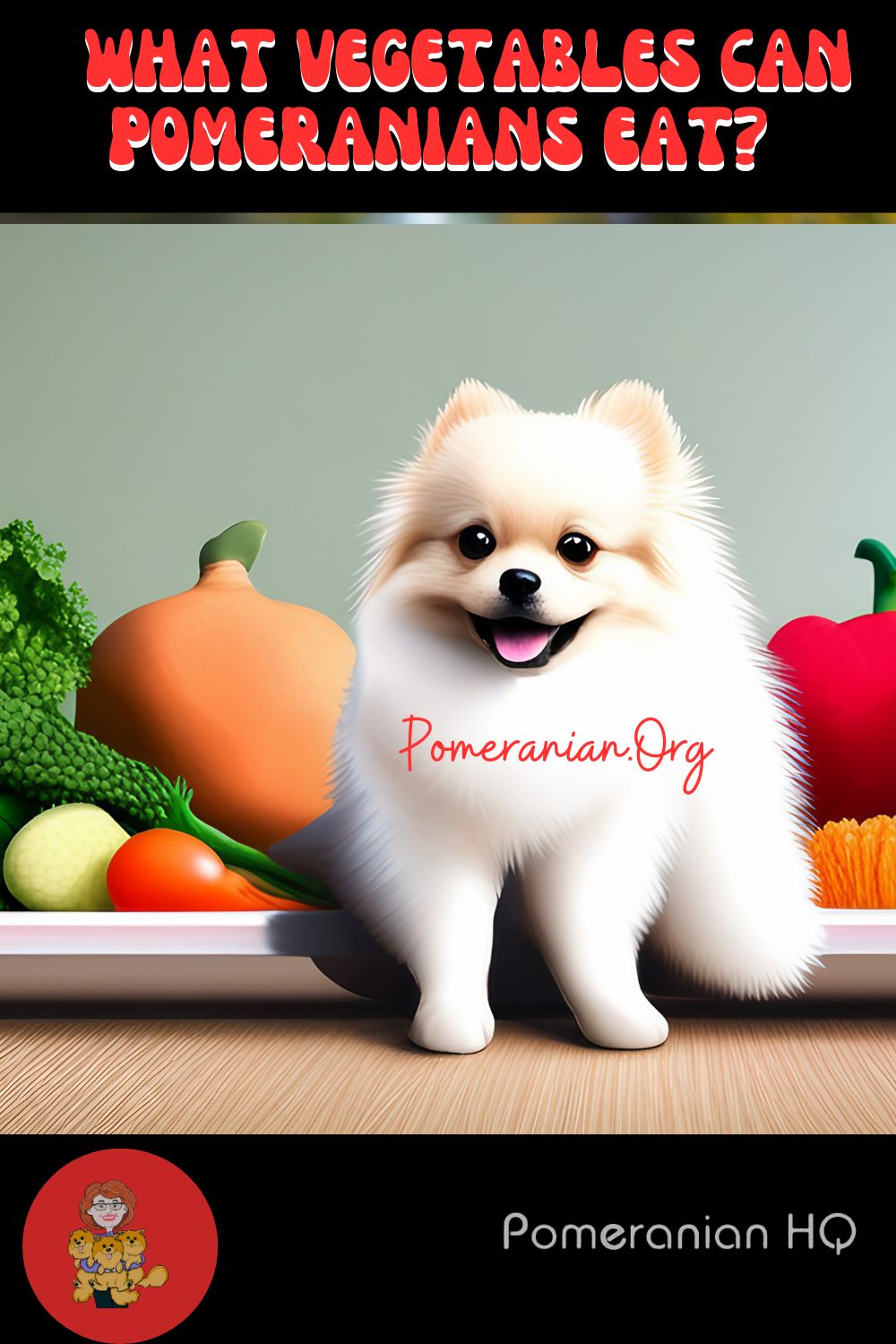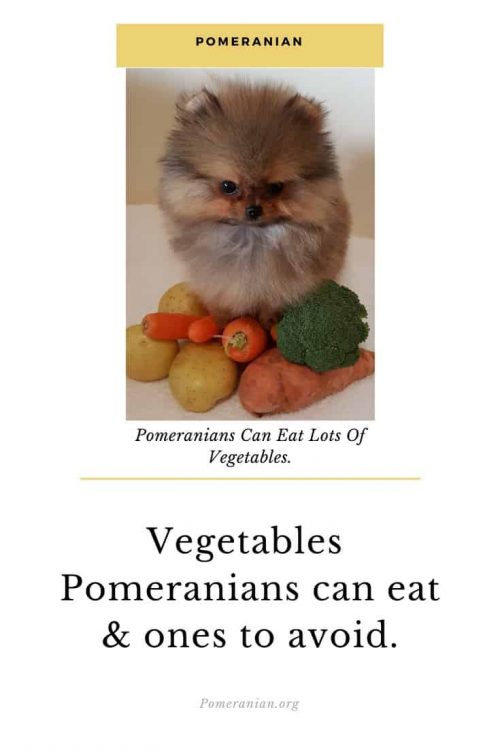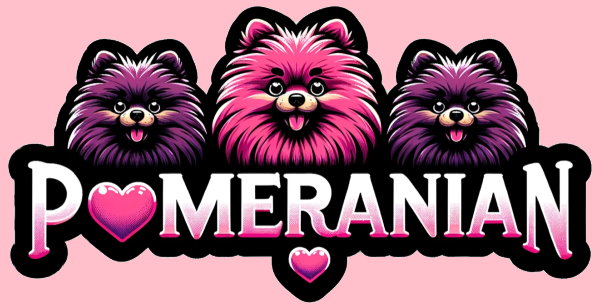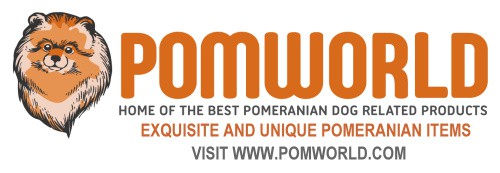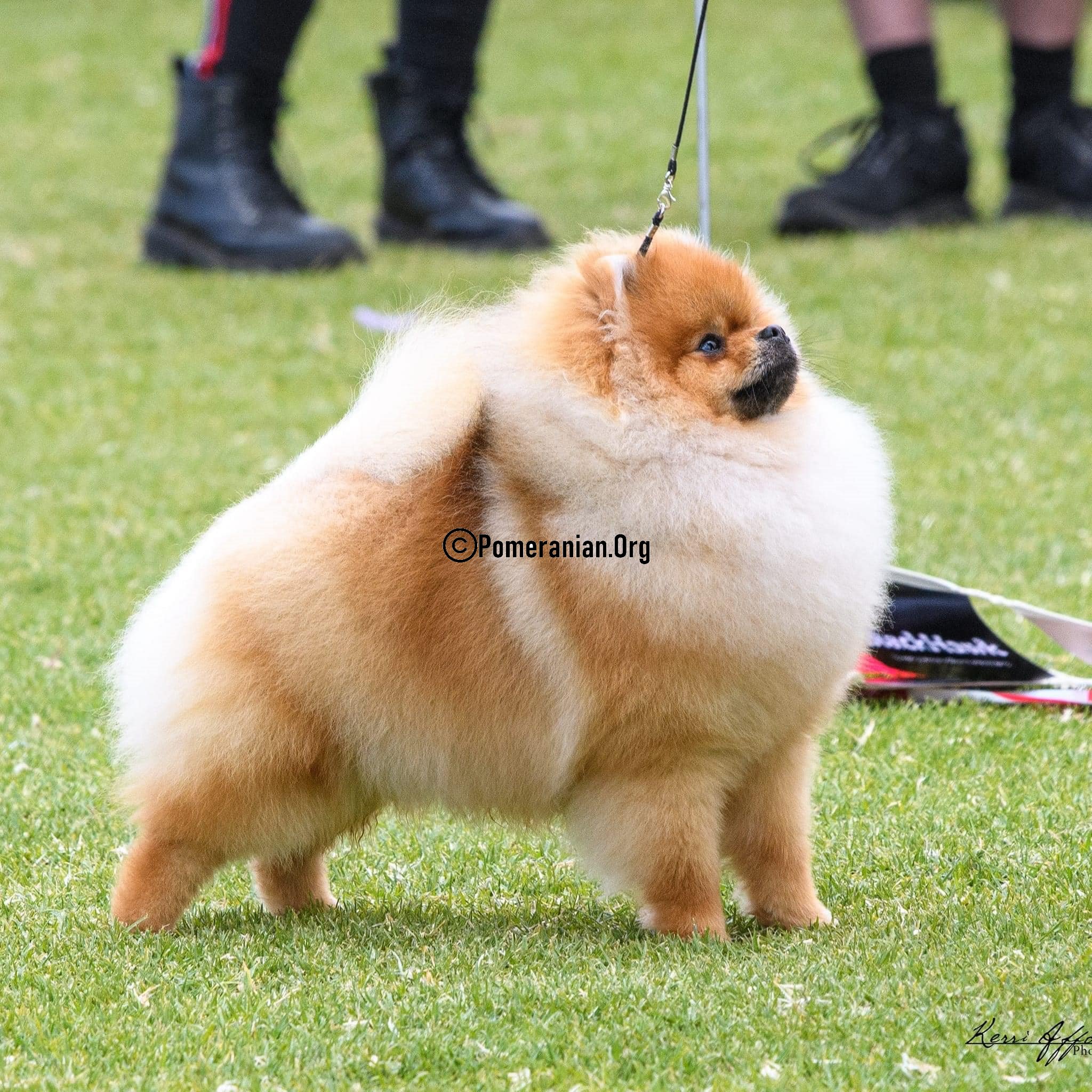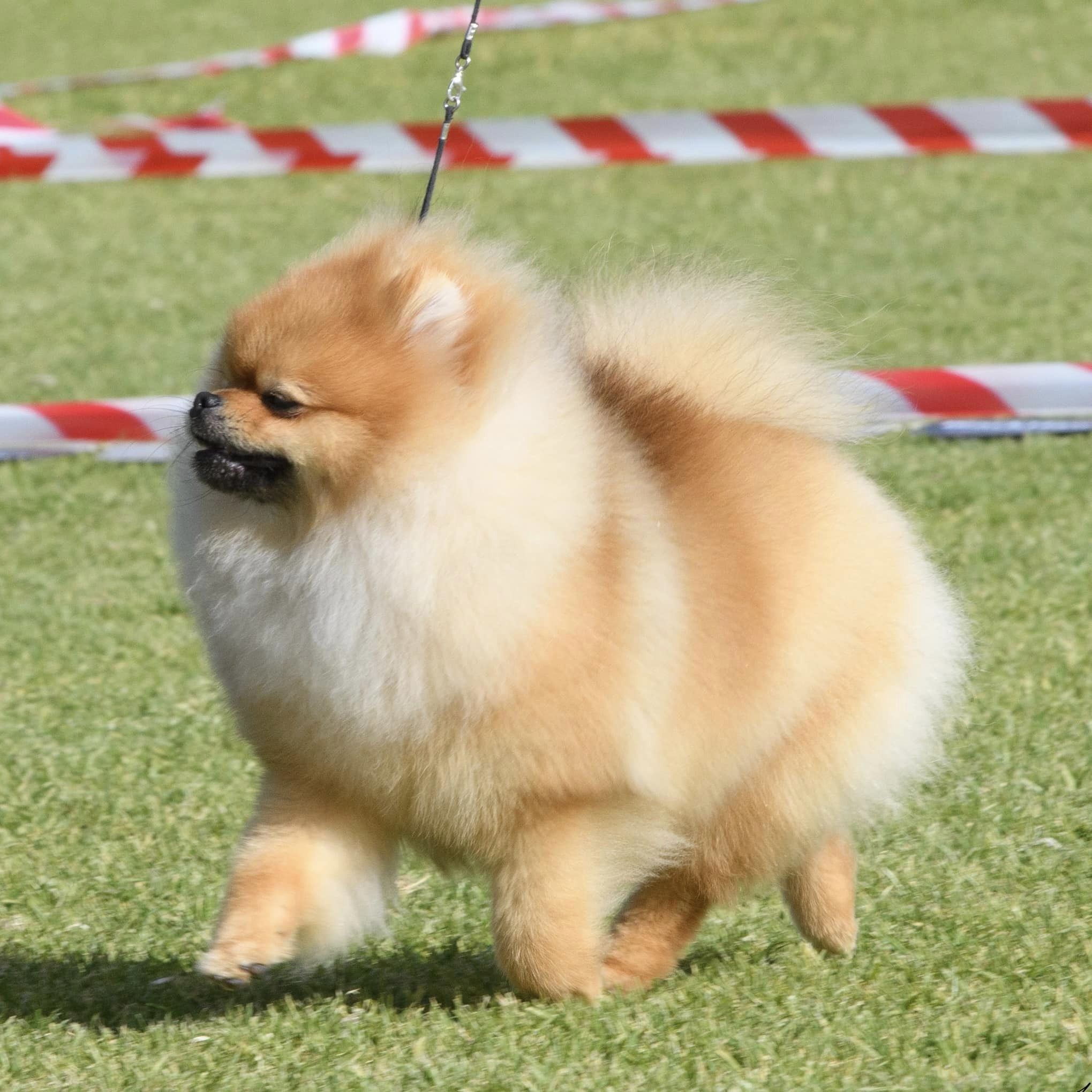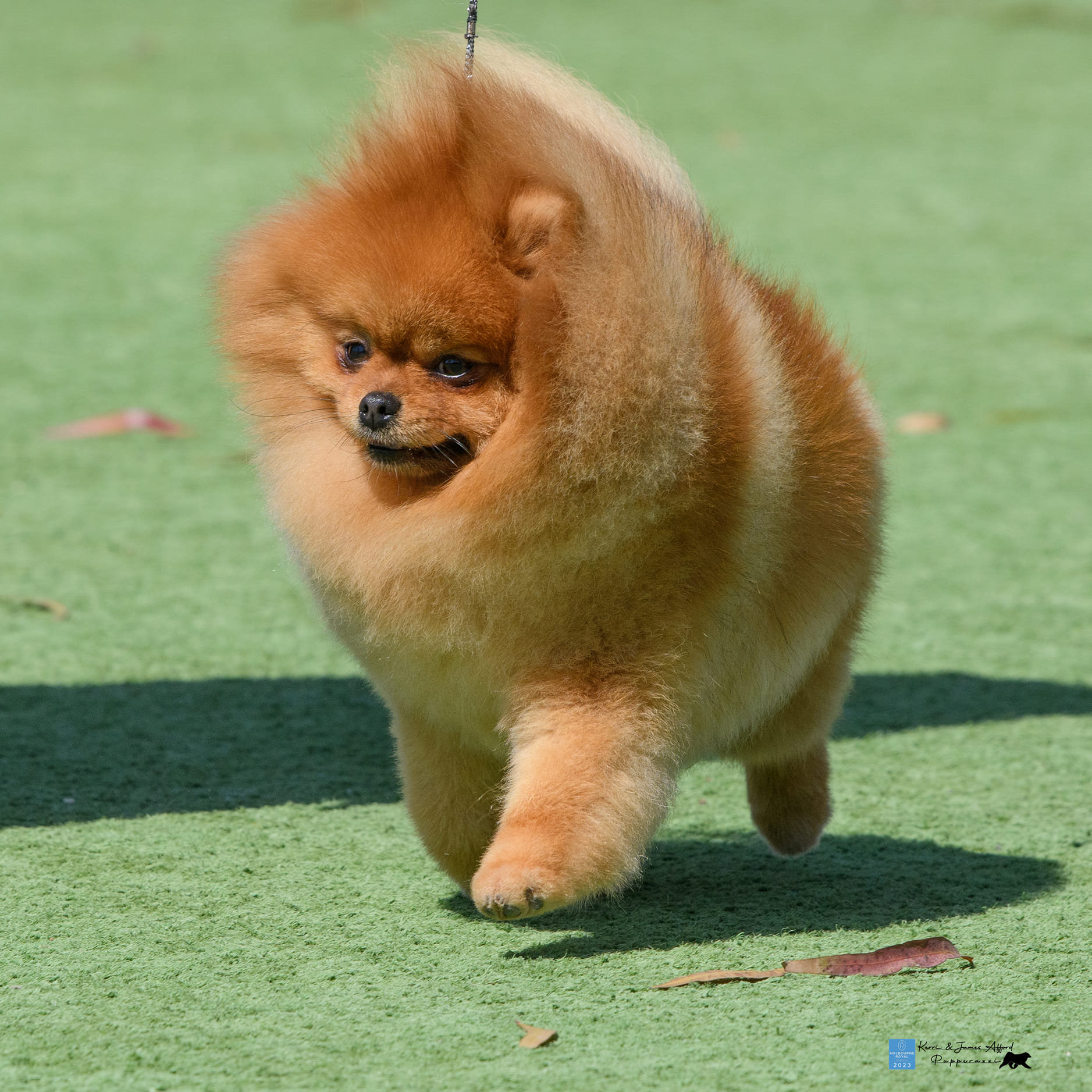Last Updated on 04/02/2024 by Denise Leo. Post first published on September 22, 2023.
If you’re curious about what vegetables are safe for your Pomeranian to eat, this article covers the nutritional benefits and tips on how to feed them best.
Remember when you were forbidden to leave the dinner table while food was still on your plate? This also included all vegetables.
If you didn’t like some veggies when you were younger, today, you have probably grown accustomed to eating them. Most vegetables you can get are full of all the essential nutrients needed to thrive in today’s toxic environment.
Have you ever considered whether your Pomeranian can also benefit from the powerful nutrients in vegetables?
The good news is yes! Pomeranians can enjoy a wide range of vegetables. However, a few vegetables are toxic to dogs, so ensure you create and keep a list of safe vegetables handy so your Pom can enjoy a tasty vegetable treat each day.
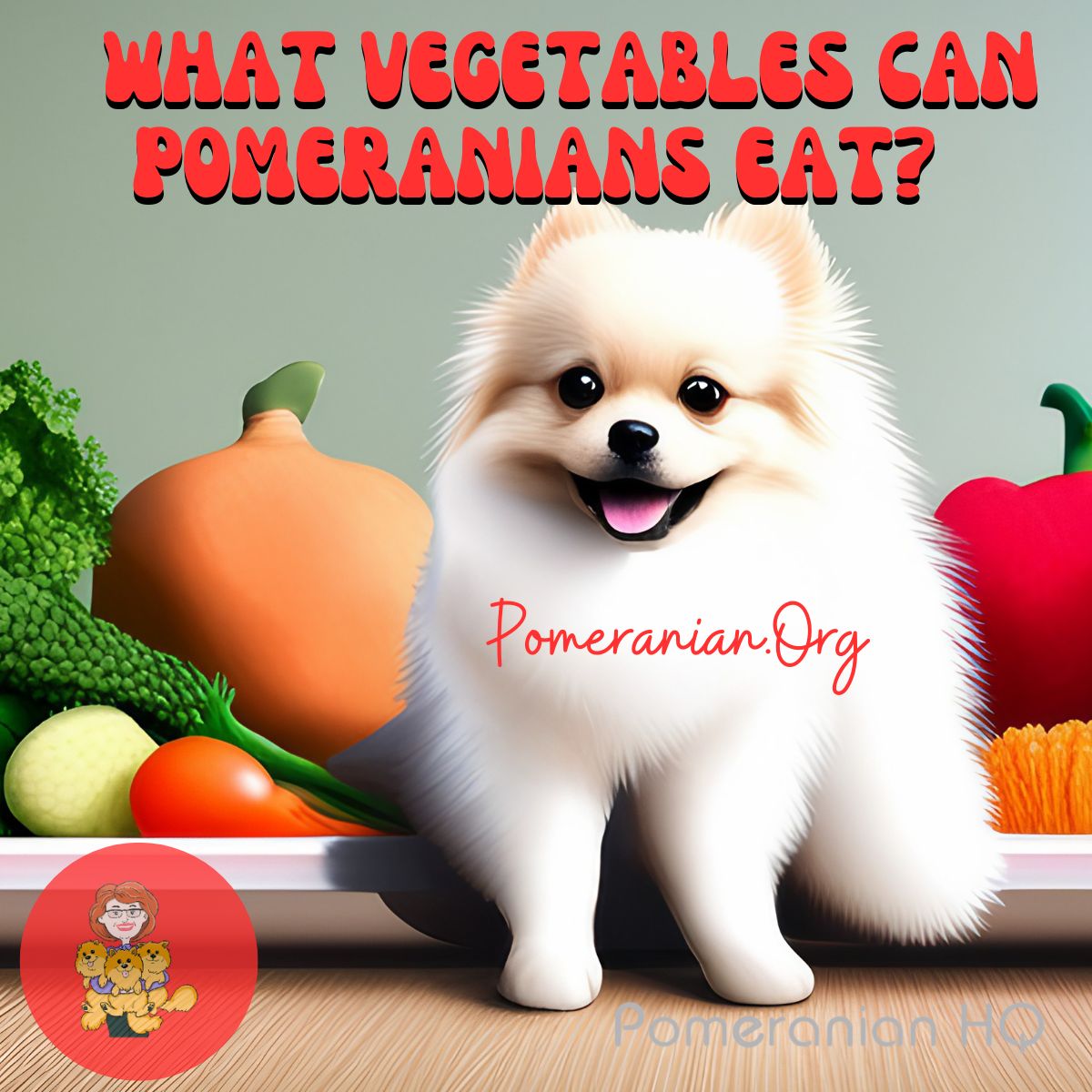
What Are The Benefits Of Giving Dogs Vegetables?
For many pet owners, incorporating vegetables into their dog’s diet might seem unconventional. After all, canines in the wild are primarily carnivorous, right?
However, domesticated dogs have evolved over thousands of years alongside humans, and their dietary needs have diversified. Incorporating vegetables into your dog’s diet can offer numerous benefits. Let’s explore the advantages of sharing green goodness with our furry friends.
- Rich in Essential Nutrients: Vegetables are brimming with essential vitamins, minerals, and antioxidants that bolster overall health. Take carrots, for example, and they’re a good source of beta-carotene, which is crucial for maintaining eye health. Similarly, green beans, being low in calories, are enriched with vital vitamins such as C and K, as well as fiber that promotes healthy digestion.
- Weight Management: Vegetables can be a lifesaver if your dog is chubbier. They are generally low in calories and high in fiber, making them a suitable addition to your dog’s diet. Fiber-rich vegetables can make your dog feel full without adding excessive calories.
- Improved Digestion: Vegetables such as pumpkin and sweet potatoes are abundant in dietary fiber, aiding in normalizing your dog’s digestive processes. They can be particularly beneficial for dogs suffering from constipation or diarrhea.
- Dental Health: Crunchy vegetables like carrots or celery can act as natural toothbrushes, helping to remove plaque and improve dental health. Chewing on these veggies can stimulate saliva production, reducing the risk of cavities.
- Hydration Boost: Many vegetables have a high water content. Cucumbers, zucchini, and lettuce, for instance, can aid in keeping your dog hydrated, especially during warmer months.
- Disease Prevention: Vegetable antioxidants can help reduce the risk of chronic diseases. These compounds fight off free radicals in the body, which can lead to cellular damage.
- Enhanced Immunity: Vegetables, such as broccoli and spinach, are laden with vitamins and minerals that improve your dog’s immunity, assisting them in warding off sicknesses.
- Low in Fat: Most vegetables are low in fat, making them a great option for dogs with pancreatitis or those at risk of developing fatty conditions.
- Natural Treats: Instead of commercial dog treats that might contain artificial flavors, preservatives, or too much salt, raw or lightly steamed veggies can serve as healthy and natural rewards for good behavior.
- Increased Longevity and Vitality: Boost your dog’s health with a veggie-packed diet for a vibrant and energetic life.
Before introducing any new foods, including vegetables, into your dog’s diet, it’s essential to consult with a veterinarian. Although numerous vegetables are safe and advantageous for dogs, others, such as onions and garlic, can pose a toxic risk. Always slowly introduce new food to monitor for allergic reactions or digestive issues.
With the right vegetables and portions, your dog can enjoy a balanced, nutritious diet that satisfies their taste buds and provides numerous health benefits. Sharing the love of vegetables with our canine companions is a step towards a healthier, happier life for them.
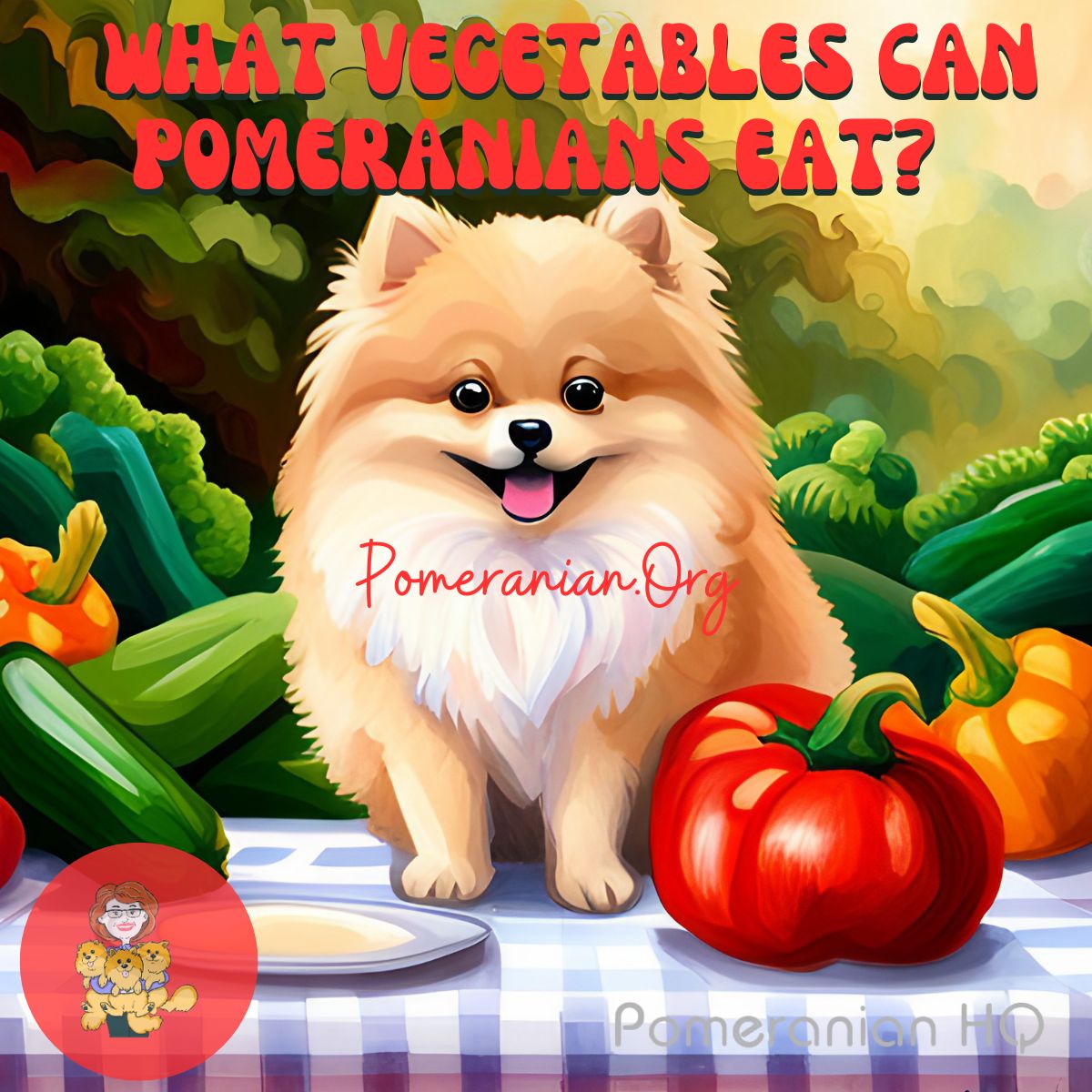
List of Vegetables Dogs Can Eat
When considering a dietary change or addition for your furry friend, it’s essential to do thorough research. A ‘list of vegetables dogs can eat’ can be a beneficial resource for pet owners.
This safe vegetables for dogs list will guide you in selecting nutritious, safe, and health-boosting options for your canine companion. Always remember that while many vegetables offer a range of benefits, some might be harmful, so it’s crucial to be informed and cautious.
Can You Feed Pumpkins To Dogs?
Although botanically classified as a fruit due to its origin from the flowering part of the pumpkin vine, pumpkin is typically regarded as a vegetable in culinary contexts. On the other hand, veterinarians hold pumpkins in high esteem for their health benefits.
Elderly dogs, in particular, can derive numerous advantages from pumpkins. Rich in fiber, pumpkin can be a remedy for various digestive issues. If your dog experiences bouts of diarrhea, the abundant fiber in pumpkin aids in solidifying their stool by soaking up excess water. On the other hand, if your furry friend is dealing with constipation, the natural laxative properties of the fiber can facilitate smoother bowel movements.
Beyond its fiber content, pumpkin boasts pepita oil, a source of the omega-6 fatty acid known as linoleic acid. Research indicates that this fatty acid possesses anti-inflammatory properties, making it beneficial for your dog’s skin health.
Incorporating pumpkin into your dog’s meals can effectively address persistent soft stool issues. The most convenient forms to introduce are cooked or canned pumpkin. When opting for canned pumpkin, it’s vital to scrutinize the label.
Aim for plain canned pumpkin, devoid of excess sugars and unnecessary additives. Avoid grabbing pumpkin pie filling, as it’s typically laden with sugars and spices that aren’t ideal for your pet.
Given their potential choking risk, bypassing pumpkin seeds is also wise.
When first integrating pumpkin into your dog’s diet, start with a modest one to two tablespoons mixed into their regular meals. Don’t be startled if you notice a slightly orange hue to your dog’s feces—it’s merely a harmless side effect of this nutritious addition.
Can Pomeranians Eat Carrots?
Yes, carrots are great for Pomeranians. I add grated carrots to lots of home-cooked meals for my Pomeranians.
Can Pomeranians Eat Celery?
Yes, celery in small amounts added to your home-cooked Pomeranian food is very good for dogs.
Can Pomeranians Eat Corn?
Again, yes, Pomeranians can eat corn. Avoid the corn cobs, as these pose a very serious choking danger for most dogs, including our small Pomeranians.
Can Dogs Eat Green Beans
As pet owners, we often wonder about the safety of sharing our favorite foods with our furry companions. One such commonly questioned food is green beans. So, can dogs eat green beans? The short answer is yes, and they can be an excellent addition to your dog’s diet in moderation.
Green beans are very low in calories and packed with essential nutrients, making them a healthy treat option for dogs. Beans are also abundant in essential vitamins such as Vitamin C, K, and manganese; they can provide a nutritional boost to your dog’s overall health. They’re also a fantastic source of fiber, which promotes healthy digestion and can be beneficial for dogs needing weight management. The fiber content can help your dog feel full without adding excessive calories, aiding in weight loss or maintenance.
However, it’s essential to ensure the green beans are served in a dog-friendly manner. While raw or steamed green beans without any additives are the best, it’s crucial to avoid giving dogs beans seasoned with salt, garlic, or onions, as these can be harmful. Always gradually introduce any new food, including green beans, to observe any adverse reactions.
Not only can dogs enjoy green beans, but these little green veggies can also offer a myriad of health benefits. They are ideal for giving their pets a nutritious, low-calorie snack.
Can Dogs Eat Green Peas?
Green peas, those small, vibrant spheres, are often a staple in human diets. But many dog owners find themselves wondering, can dogs eat green peas? The answer is yes, they can. Green peas can offer a nutritious bite for our furry friends in the right amounts.
Green peas are a good source of essential vitamins and minerals, including vitamins K, B, and C, which can support overall health. Additionally, they provide dietary fiber, which can assist digestion and help maintain a healthy weight by promoting a feeling of fullness. Besides the nutritional benefits, peas can serve as a low-calorie treat, perfect for dogs undergoing weight management.
However, it’s essential to approach peas as an occasional addition rather than a primary diet component. Ensuring the peas are plain, without added salt, spices, or other seasonings, is also advisable. If introducing green peas to your dog’s diet, start with small amounts and watch for allergic reactions or digestive issues. Green peas can be a wholesome and delightful dog treat, complementing their main meals with added nutrients.
Be aware that peas can pose a choking hazard for small Pomeranian puppies.
Can Dogs Eat Spinach?
Small puppies should eat spinach as it contains iron and various cancer-fighting properties.
Can Puppies Eat Broccoli?
Broccoli is highly nutritious as long as you don’t feed your Pom too much because that can cause harm. Broccoli, Brussels sprouts, and a few others contain isothiocyanate.
In large amounts, your Pomeranian can experience gastrointestinal problems for your dog, leading to excessive gas and diarrhea, constipation, and dehydration, which is very dangerous for such a small dog.
Can Dogs Eat Zucchini And Squash?
The journey to providing our canine companions with a varied, nutritious diet often leads pet owners to question the safety of certain vegetables. A common query that arises is, can dogs eat zucchini and squash? The good news is, yes, both zucchini and squash are safe and healthy options for dogs when offered in moderation.
Zucchini is a low-calorie vegetable high in fiber, making it an excellent choice for dogs, especially those watching their weight. This fiber-rich content can also aid in digestion and promote healthy bowel movements.
Similarly, squash, including both summer and winter varieties, contains vital nutrients like Vitamin A, C, and B-complex vitamins. These vitamins support skin health, vision, and overall immune function.
When introducing zucchini or squash into your dog’s diet, it’s best to serve them cooked and without any seasonings, especially salt, garlic, or onions, which can harm dogs. Steaming or boiling these vegetables without additives ensures your dog can enjoy their benefits without risk.
As with any new food, start with small amounts and gradually increase the portion while observing for any adverse reactions. Both zucchini and squash can be delightful, nutritious additions to your dog’s meals, making mealtime tasty and health-boosting.
Can Dogs Eat Potatoes?
Poms love eating potatoes. However, raw potatoes aren’t good for small dogs to eat, so it’s essential to cook your potatoes, regardless of the variety. Sweet potatoes are better because they contain vitamins A, B6, C, E, iron, and calcium.
Can Dogs Have Sweet Potatoes?
Sweet potatoes are not just a favorite side dish during family dinners; they’ve also garnered attention in the pet community. Many dog owners wonder, can dogs have sweet potatoes?
The answer is a resounding yes. Sweet potatoes are safe for consumption and brimming with vital nutrients that are advantageous for our canine companions.
Sweet potatoes are rich in dietary fiber, aiding digestion and promoting regular bowel movements. Additionally, they are a good source of vitamins such as Vitamin A, various B vitamins, and Vitamin C.
In particular, Vitamin A is crucial for maintaining healthy skin, coat, eyes, and muscle strength in dogs. Sweet potatoes contain essential minerals like potassium and manganese, which support various body functions, including muscle contractions and bone health.
When introducing sweet potatoes to your dog’s diet, offering them cooked and in moderation is best. Dogs may need help to digest uncooked sweet potatoes. Boiled or steamed without any seasonings is the preferred method of preparation.
Avoid adding butter, salt, or spices, which can harm canines. Always monitor your dog after introducing new food to ensure no adverse reactions. Given their numerous health advantages, sweet potatoes can be a tasty and healthful inclusion in your dog’s meals.
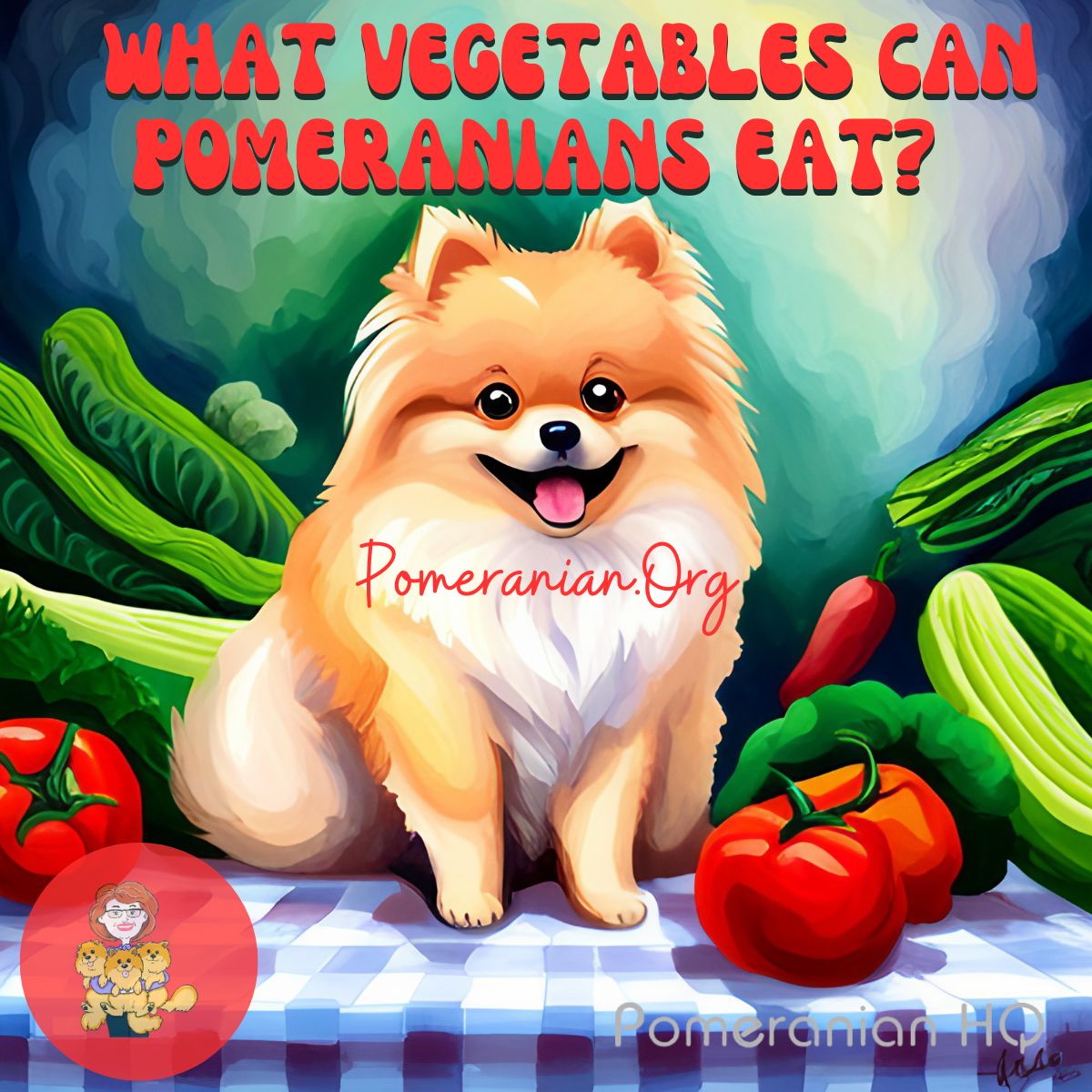
Can Dogs Eat Cauliflower?
With its unique texture and mild flavor, cauliflower is a versatile vegetable gracing many human plates. For those dog owners who’ve pondered, “Can dogs eat cauliflower?” the answer is yes. Cauliflower is safe for dogs and can be beneficial to their diet when given in moderation.
Rich in vitamins, minerals, and antioxidants, cauliflower can help support overall canine health. It contains nutrients such as vitamin K, C, and fiber, which aid digestion and help maintain a healthy gut. Moreover, the cruciferous vegetable is known for its anti-inflammatory properties, which can benefit dogs with certain health conditions.
If you decide to introduce cauliflower into your dog’s meals, ensure it’s served in a digestible form. Steaming or boiling the cauliflower without any added seasonings is ideal. It’s crucial to avoid ingredients like garlic, onions, or salt, which might be detrimental to dogs.
As with any new food, introduce it slowly and watch for possible allergies or digestive issues. When served appropriately, cauliflower can be a tasty and nutritious treat for your canine companion.
Can Dogs Eat Beets?
Beets have become increasingly popular in human diets with their vibrant hue and earthy flavor. But what about our furry friends? Can dogs eat beets? The answer is yes, dogs can consume beets, and in moderation, they can be a healthful addition to their diet.
Beets contain essential vitamins and minerals, such as vitamin C, potassium, and manganese. These nutrients contribute to overall health, supporting crucial bodily functions and the immune system.
Furthermore, beets are a source of dietary fiber, promoting digestive health and regular bowel movements. The natural antioxidants present in beets can also help combat free radicals, promoting cellular health.
If you’re considering introducing beets to your dog’s diet, it’s essential to do so cautiously. It’s best to serve beets cooked and unseasoned, as raw beets can be tough for dogs to digest. Additionally, avoid canned beets with added salt or preservatives.
As with any new food, introduce beets slowly and observe your dog for any signs of allergies or digestive disturbances. While beets can be a beneficial and colorful addition to a dog’s meal, it’s always vital to prioritize their safety and well-being.

What Vegetables Are Not Good For Dogs?
As dog owners, we always seek to provide the best nutrition for our furry companions. While many vegetables are packed with nutrients and can be great additions to a dog’s diet, some should be avoided. It’s crucial to be aware of these to prevent potential health risks.
- Onions & Garlic: Both onions and garlic can be toxic to dogs, leading to gastrointestinal upset and red blood cell damage. This includes all forms – raw, cooked, powder, and even those present in some baby foods.
- Grapes and Raisins: Although technically fruits, they deserve mention here due to their high toxicity level in dogs. Consumption can lead to rapid kidney failure in some dogs.
- Mushrooms: While some are safe, others can be highly toxic. It’s challenging to differentiate between edible and poisonous mushrooms, so avoiding them altogether is best to prevent potential poisoning.
- Rhubarb: The leaves, particularly, contain oxalic acid, which can cause kidney failure in dogs. Even the stalks, when consumed in large amounts, can be harmful.
- Avocado: Containing a substance called persin, avocados can cause diarrhea, vomiting, and heart congestion in dogs. While the largest concentration is in the pit, keeping avocados away from dogs is best.
- Raw Potatoes: Green potatoes or those with sprouts can contain toxic chemical solanine. While cooking usually breaks it down, dogs should be given something other than raw or undercooked potatoes.
- Brussel Sprouts: Broccoli contains 10% of a Pom’s RDA, and because of its dangerous ingredient, it may be wise to avoid feeding him these particular foods completely.
It’s important to remember that all dogs are individuals. What affects one dog might not affect another, and vice versa. However, to err on the side of caution, it’s best to avoid the abovementioned vegetables and always consult your veterinarian when introducing any new food into your dog’s diet. This proactive approach ensures our dogs stay healthy, happy, and far from potential dietary dangers.

How To Prepare Vegetables For Dogs?
Vegetables are a great way to introduce essential nutrients into your dog’s diet. However, it’s not just about tossing any veggie into their bowl; there’s an art to preparing them correctly to ensure your dog’s safety and maximize nutritional benefits. Here’s a guide on how to prepare vegetables for dogs.
- Research Before Introducing New Vegetables: Before considering preparation, ensure the vegetable is safe for canine consumption. Familiarize yourself with a comprehensive list of safe vegetables and, equally importantly, those toxic to dogs, such as onions and garlic.
- Wash Thoroughly: Like the veggies you consume, ensure you wash all vegetables to remove pesticides or contaminants. Organic vegetables are preferred as they are less likely to contain harmful chemicals.
- Opt for Fresh: Fresh vegetables are often the best as they retain most nutrients. Frozen vegetables are a close second if you can’t access fresh options. However, avoid canned vegetables as they often contain added salts or preservatives that could be better for dogs.
- To Cook or Not to Cook: Many vegetables can be given raw, but others are better digested when cooked. For instance, carrots can be given raw for a crunchy treat or steamed to make them softer. However, veggies like broccoli and Brussels sprouts should be cooked to make them easier to digest.
- Avoid Seasonings: When preparing vegetables for your dog, always avoid adding salt, spices, or artificial flavorings. Dogs don’t need these additions, and some seasonings can be harmful.
- Chop or Puree: Depending on your dog’s size and preference, chop the veggies into bite-sized pieces or puree them. Smaller pieces or a pureed form can be mixed in with their regular food, ensuring they get their vegetable intake without fuss.
- Portion Control: While vegetables are beneficial, they should only supplement your dog’s diet. Too many vegetables can lead to digestive problems. Generally speaking, vegetables should make up at most 10% of your dog’s daily food consumption.
- Monitor Their Reaction: Watch your dog for allergic reactions or digestive issues when introducing a new vegetable. It’s advisable to seek guidance from your vet if you observe any anomalies.
Incorporating vegetables into your dog’s diet can offer many health benefits. Knowing how to prepare them correctly ensures your canine companion enjoys these benefits without drawbacks.
Always prioritize their safety and well-being by making informed decisions on the type and preparation of the veggies they consume. You can make nutritious and delicious mealtimes for your furry friend with some research and care.
Final Thoughts on What Vegetables Can Pomeranians Eat
You could include some of the better options in a routine Pomeranian meal plan. Numerous dog food brands are large “fillers” – useless, cheap ingredients that help make the companies more profitable while not benefiting the dogs. Adding vegetables to these commercial dog foods will increase their nutritional value.
Many Pomeranian dog owners like creating meals from scratch for their dogs. There are loads of dog food recipes available, but they mostly all follow a general pattern of lean meat and a few nutritious, delicious vegetable options that satisfy your Pomeranian dog’s appetite without the need for junk dog food.
Disclaimer: The Content is not a substitute for professional veterinarian advice, diagnosis, or treatment. Always seek the advice of your veterinarian with any questions you may have regarding your dog’s medical condition. Never disregard professional advice or delay seeking it because of something you have read on ANY website.
Copyright Pomeranian.org. All Rights Reserved.
References and Further Reading:
[1] Denise Leo “The Pomeranian Handbook”.
